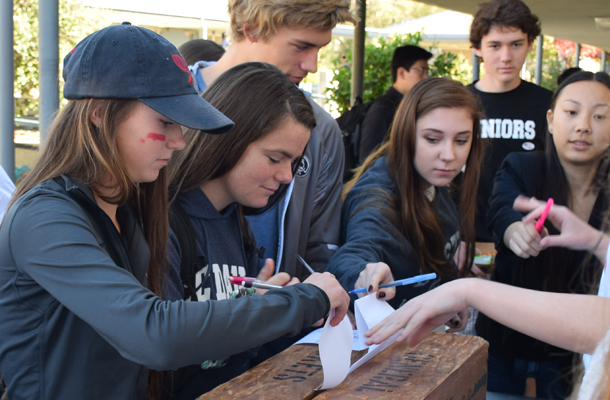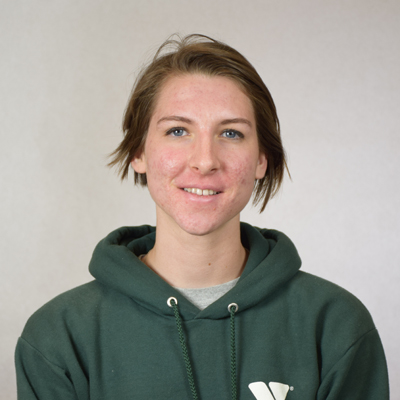Fantasy Vote Elects Clinton
November 14, 2016
In a mock election coordinated by social studies teachers Dino Petrocco and Tom Renno which allowed students to vote for president and key California ballot measures during brunch and lunch on November 8, Hillary Clinton was a big winner.
Volunteers from AP comparative government classes manned a ballot box in front of the A hall, encouraging passing students and teachers to cast their votes.
The propositions on the school’s ballot were Prop 55, which would increase taxes on higher incomes, Prop 62, which would repeal the death penalty, and Prop 64, which proposed legalizing marijuana. Student voters approved all three.
While most of Campolindo’s student body is too young to vote in the real election, with so much media coverage and discourse among peers and parents about the 2016 campaign, some students believe their voices should be heard, even if it is in the form of mock voting. “I think that it’s important to get the opinion of millennials, even if we don’t get to vote,” said senior Claire Nelson, a volunteer who handed out ballots to students.
Petrocco said the election was an opportunity to teach his AP comparative government class about the electoral college and the California government. “I have taught them that your vote matters more depending upon where you live and that is the truth. [I’m] trying to get them to comprehend what impact that has on the party system because the electoral college will probably never have more than a two party system,” he said. He wanted to create the mock election to show the school’s individual stance, despite the larger regulations that dictate which party is most prominent in the state.
One of the bigger questions his class is tackling is whether the current system of tabulating votes, including the electoral college processes for determining the president, should continue or be revised.
The results of the school’s mock election will be decided on a simple majority.
“I think that by having this election, it promotes political participation so I think by starting at a young age it empowers students to have their voices heard,” said senior Cathy Tang.

